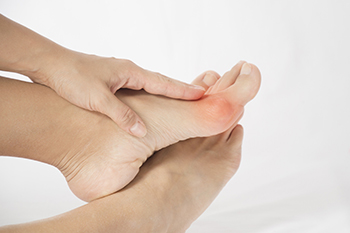
Bunions are uncomfortable bony bumps that can develop on the side of the feet. Typically, bunions form on the outside of the foot near the big toe. However, smaller bunions may also develop on the outside of the foot near the pinky toe. When an individual ages, they may become increasingly susceptible to foot conditions, such as bunions. Many senior adults who have bunions often wonder whether bunion surgery is a suitable option for them. The answer is slightly complicated and dependent on each individual patient. It is important to note that an older individual can undergo a surgery to address their bunions. However, it is equally important to note that several age-related conditions may make bunion surgery less feasible. For example, diabetes, obesity, and weak bone health may increase the risks associated with surgery for bunions. If you are a senior living with bunions and would like to inquire about possible surgical procedures, it is recommended that you consult a podiatrist today.
If you are suffering from bunions, contact one of our podiatrists of Lovely Foot Associates, PC. Our doctors can provide the care you need to keep you pain-free and on your feet.
What Is a Bunion?
A bunion is formed of swollen tissue or an enlargement of boney growth, usually located at the base joint of the toe that connects to the foot. The swelling occurs due to the bones in the big toe shifting inward, which impacts the other toes of the foot. This causes the area around the base of the big toe to become inflamed and painful.
Why Do Bunions Form?
Genetics – Susceptibility to bunions are often hereditary
Stress on the feet – Poorly fitted and uncomfortable footwear that places stress on feet, such as heels, can worsen existing bunions
How Are Bunions Diagnosed?
Doctors often perform two tests – blood tests and x-rays – when trying to diagnose bunions, especially in the early stages of development. Blood tests help determine if the foot pain is being caused by something else, such as arthritis, while x-rays provide a clear picture of your bone structure to your doctor.
How Are Bunions Treated?
If you have any questions, please feel free to contact our office located in Johnstown, PA . We offer the newest diagnostic and treatment technologies for all your foot care needs.